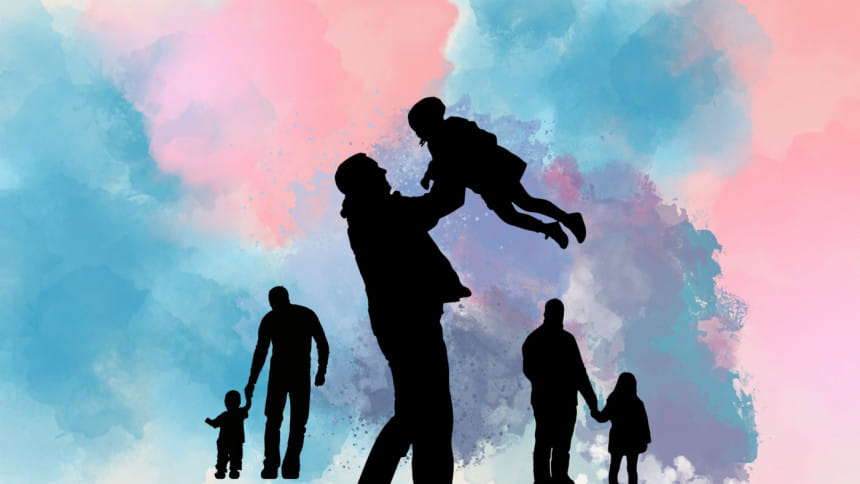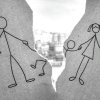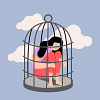Understanding the person and the parent

In a culture where parents are often put on a pedestal, it seems redundant to have designated days to remind ourselves of the people who made us. We are constantly reminded of that regardless. In recent times, Mother's Day has gained momentum here and become more of a mainstream idea.
Here, even if people know of these days, they are still more of an idea than something one actually celebrates. And in a country where there are so many woes and hardships, one perhaps cannot but cynically look at it. However, there can be a scope for localisation that isn't sponsored by a neoliberal profit-making scheme.
Father's Day can be a chance to look at fathers to see what's really going on with them. This is also an attempt to articulate how it feels to seek reconciliation when fathers are no longer with us.
Growing up, for the longest time, I didn't identify my father as a man. He was just my father, and then there was this world of men—men who, in my opinion as a teen, were mucking up my every plan to be gloriously sixteen, seventeen. While I was frowning trying to figure out why a girl is the worst enemy these men can have, and why my laughter and joy was the bane of their existence, my father ceased to exist. And he remained just that, my father, for a ridiculously long time.
And then, it hit me—my father was a man.
I don't think parents realise how powerful they are. It truly boggles my mind how people remain so nonchalant and do not see that if there is anything miraculous left, it is that they can just decide to bring another human being into this world. That is a power akin to that of being able to say, "Let there be light." So, no wonder it doesn't register easily that these people you call Amma and Abba are people too, that they are human beings whom some other folks once decided to bring into this world, that one's father is just a man, made in this culture with language that wouldn't let him be a full human being.
I'm sure it is somewhat true for every culture, but living in a country such as ours, the relationship between a father and a daughter is a very strange one. The majority consensus for the daughters of Bangladesh is that beware of men. Newspaper articles, TV screens and cinemas all come as precautionary messages of what can happen to you as a girl. Here, fathers have a very panic-inducing job to do.
They are the representative of the clan of men. They have a working knowledge of what array of members their clan consists of. They fear the members they don't know well. While I was growing up, I thought women feared men. I had no idea how much men fear men, too.
While I was diagnosing myself and the society out there, I saw my father. A man who had me when he was at my age. He had seventeen years to talk to me. I'm sure he thought he had time. There's no need to even mention that I thought we had time. Time was still a concept that proposed infiniteness.
It is a little harder, though not impossible, to reach reconciliation with fathers who are no longer here. Especially if one loses their father at an early age, one becomes quite a detective. It's like their life is spread in front of you and the last entry on the diary has been made. Now make what you want to make out of it. You cannot interrogate, you cannot interview, and no one is going to talk back. You just have to take versions of events from eyewitnesses and examine the existing entries and reach a point.
Reconciliation is needed because the rapture of life tears us apart and bars us from seeing the stage where there is forgiveness and compassion.
Because I couldn't reach my father, quite subconsciously, I developed this habit of looking at as many fathers as I could. It was a hobby, like collecting stamps; I would collect memories of my female friends with their fathers.
I've seen some wonderful fathers in my lifetime, and I saw some truly horrible ones too. I have no unrealistic romanticisation of fatherhood. In my brain, they are not kept on pedestals. I also understand that being a good father does not equal being a good husband. And I have reached that point where I see fathers as men who were taught to put on a brave face and stride, who tried to be the fathers we deserved, and when they failed, couldn't cry.
So, there was this daughter in Washington, Sonora Smart Dodd. At age 27, she had the idea for Father's Day. Her father was a Civil War veteran who raised her and her five siblings alone after their mother died in childbirth. The first Father's Day was celebrated on June 19, 1910, the month of her father's birthday.
Though I don't buy into this very Americanised way of celebration and all that it entails, I do like this story. I try to imagine Sonora's father as well. He always comes in the image of Jo March's father in The Little Women. And I want to give them a hug, from our house to theirs.
In the hurry to hide true emotion in humour, I digress. I should crack a joke right about now! I want to say Happy Father's Day to Darth Vader. I want to say the most famous son is Jesus Christ. And while my brain seeks denial of grief in humour, I see my father laughing. I see him talking to my older brother, my brother reading Kahlil Gibran's poem "On Children" in a very intentional way—
"You are the bows from which your children as living arrows are sent forth."
I see my father hiding shadows of sadness in his eyes, I see him smile.
And even after knowing how it would make us both cringe, to my beautiful, brilliant father, I say, "Happy Father's Day, Abbu!" You tried your best, you can put your armour down now, and be the joyful little boy you always wanted to be.
Sumaya Mashrufa is sub-editor at The Daily Star.
Views expressed in this article are the author's own.
Follow The Daily Star Opinion on Facebook for the latest opinions, commentaries and analyses by experts and professionals. To contribute your article or letter to The Daily Star Opinion, see our guidelines for submission.

 For all latest news, follow The Daily Star's Google News channel.
For all latest news, follow The Daily Star's Google News channel. 










Comments